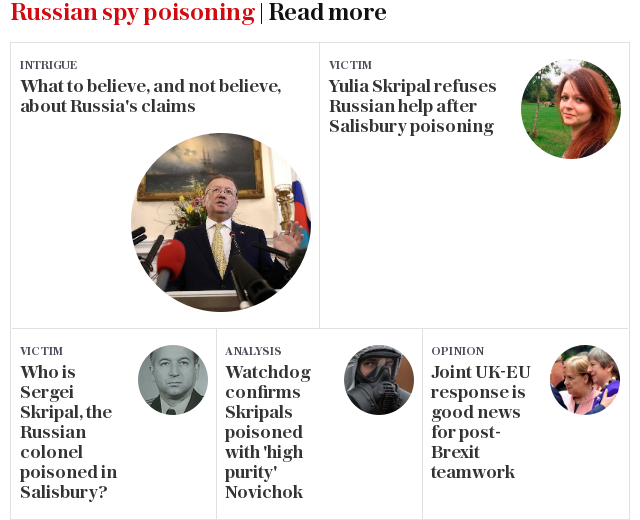Nato expels seven Russian staff in solidarity with UK over Salisbury attack

Nato has expelled seven Russian diplomats from its Brussels headquarters and will bar another three from working there, the organisation's Secretary General has said.
Jens Stoltenberg said Nato wanted to "send a clear message to Russia that there are costs and consequences for its unacceptable and dangerous pattern of behaviour.
"And it follows Russia's lack of constructive response to what happened in Salisbury."
Mr Stoltenberg said President Vladimir Putin had "underestimated the unity of the Nato allies" in the wake of the Salisbury poisonings.
The move is another significant victory for Theresa May and Boris Johnson following an intense round of international diplomacy to build a coalition willing to stand up to Mr Putin by dismantling his Western spy network.
It means that nearly 150 Russian intelligence officers have now been ordered home by Britain, the US, Nato and 22 other countries. Ireland became the 24th country to back Britain's stance when it announced the expulsion of one Russian on Tuesday.

Mr Stoltenberg said Russia would now have "reduced capability to do intelligence work in Nato" after a show of solidarity which he said "I don't think they expected".
He said the Russian mission to Nato would now be limited to 20 people, down from its current maximum of 30.
He added: "Our actions reflect the serious security concerns expressed by all allies, and are part of the co-ordinated international effort to respond to Russia's behaviour."
Earlier, Boris Johnson hailed the mass expulsion of Russian diplomats across Europe and the United States as a “very good omen” for Britain’s relationship with allies after Brexit.
The Foreign Secretary rejected concerns that leaving the EU would damage Britain’s influence over allies, saying: "The UK may be leaving the EU but we're not leaving Europe and we remain committed unconditionally to the security of our friends and partners.
"We secured very strong support from the EU institutions but also bilaterally. It is also worth observing that not every EU member chose to expel diplomats - many of them did, and that is a very good omen for the future."

Addressing the House of Commons, the Foreign Secretary praised the international response to the spy poisoning as “unprecedented and robust”.
It came after Mrs May struck a defiant tone last night, telling Mr Putin that his gambit had “spectacularly backfired” and resulted in the largest dismantling of a Kremlin spy network in history.
With as many as 25 countries now expected to expel officials from their Russian embassies, the Prime Minister vowed last night never to allow the Kremlin to rebuild its espionage machine.


